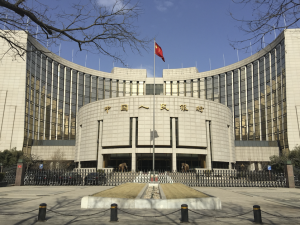Chinese Currency Reserves Tumble
Early in February, the People’s Bank of China reported that its foreign currency reserves have tumbled by nearly $100 billion in the month of January, reaching their lowest level since May of 2012. In addition, China has bought up great quantities of its own currency, the yuan, in an effort to increase demand. Many are wondering what could be behind these vast movements of capital. The complex answers points to the interactions between the international market for currencies and also to the Chinese domestic economy, debt contracts, American interest rates, and the PRC stock markets. As CNBC noted back in September, the Federal Reserve’s decision to raise interest rates, even a small degree, makes payment of debts held in dollars more difficult and expensive for foreign entities. This increased global demand for dollars not only assists the Fed in paying off debts, but also encourages moving money to American banks, who will now be paying higher returns. China’s currency, the yuan, will drop in value relative to the dollar, which should raise Chinese exports as they become cheaper to buy in other currencies.
Although this may seem positive, a weak yuan may not necessarily benefit China. This past summer, the Chinese Stock Market fell in part due to the repeated imposition of circuit breakers to halt trading, which incited panic, according to Forbes. As a result, investor confidence in the Chinese has faltered. As reported by Foreign Policy Magazine, this has led to a rapid flight of capital from China, despite its excellent trade surplus and having the world’s highest foreign currency reserves. Therefore, letting the yuan devalue further and increasing the incentive for Chinese firms or individuals to purchase dollars will not benefit a Chinese economy which has steadily slowed in the past months.
Instead of risking the uncertain future of a plunging yuan, the government attempts to manage this devaluation in an orderly way, as BBC reports. Ideally, this would restore confidence in the yuan and increase demand. Additionally, the purchase of yuan by the Chinese government will increase that demand and decrease the supply available for others, raising its value. However, even after all of this manipulation, many questions remain for China, its economy, and global effects. .

In addition to its currency woes, China suffers from a great lack of transparency. For instance, it reported a GDP growth rate of 6.9% for fiscal year 2015, precisely as expected, although entities as diverse as Radio Free Asia and CNBC raise concerns over the actual GDP growth rate in China. They claim that other measures that closely correlate with GDP growth elsewhere, such as electricity usage or steel consumption, suggest China’s growth to be nearer to 4%.
Whether its numbers truly reflect GDP or not, China drives global growth and investment. Any events that might douse the dragon’s economic flame could be enough to reduce said investment. If that happens, it will not be China alone, but the global economy as a whole that will bear the consequences.
